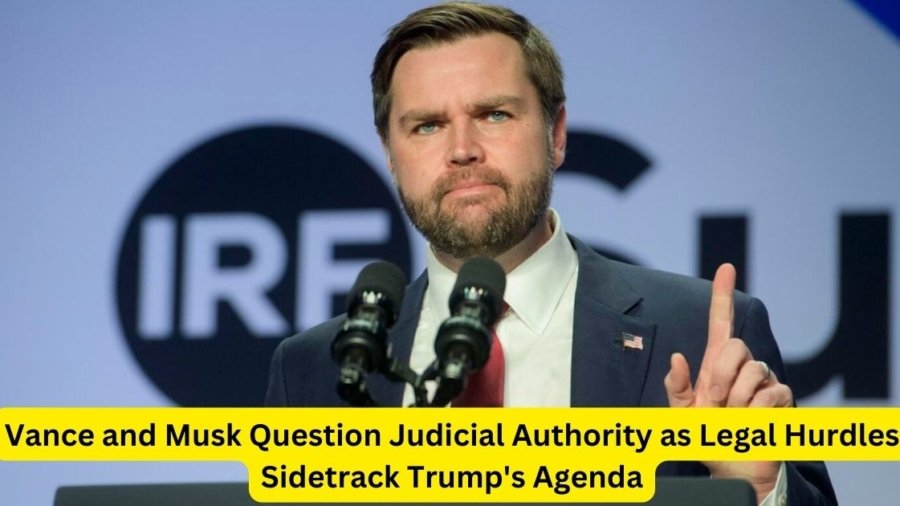Author: Abdul Jabbar | Publisher: Bouncer News
Top officials within the Trump administration, including Vice President JD Vance and billionaire entrepreneur Elon Musk, are openly questioning the authority of the judiciary as legal challenges threaten to derail key components of President Donald Trump’s ambitious agenda.
Both Vance and Musk have issued blistering criticisms since a federal judge blocked Musk’s Department of Government Efficiency from access to sensitive records in the U.S. Treasury Department over the past 24 hours. They attacked not just the ruling, but also what they said about the legitimacy of judicial oversight—that bedrock underpinning America’s democratic system, based on the separation of powers.
“If a judge tried to tell a general how to conduct a military operation, that would be illegal. If a judge tried to command the attorney general in how to use her discretion as a prosecutor, that’s also illegal. Judges aren’t allowed to control the executive’s legitimate power,” Vance posted on X (formerly Twitter) early Sunday.
Echoing Vance’s sentiments, Musk took to social media to launch a direct attack on the judge, calling for immediate impeachment. “A corrupt judge protecting corruption. He needs to be impeached NOW!” Musk wrote, signaling his frustration with the ruling that temporarily bars his team from accessing a Treasury system containing sensitive data such as Social Security numbers and bank account details of millions of Americans.
Musk, appointed by Trump to spearhead efforts in rooting out governmental inefficiencies, defended his team’s actions, asserting they are merely following the president’s directive to identify waste and abuse within federal systems. Some of Musk’s supporters even suggested defying the court order outright, prompting debates about the limits of executive power.
Stephen Miller, Deputy White House Chief of Staff, further escalated tensions by framing the ruling as an existential threat to democracy. “This is an assault on the very idea of democracy itself,” Miller declared on Fox News, criticizing what he described as an “unelected shadow force” within the government.
The judicial fightback against the broader administration moves to downsize federal agencies, make sweeping workforce cuts, and dismantle bureaucratic structures has been fierce. Several of Trump’s executive orders have been halted through court decisions, including efforts to end birthright citizenship, impose mass buyouts of federal employees, place thousands of USAID employees on administrative leave, and more.
The latest legal clash stems from a preliminary injunction issued by U.S. District Judge Paul A. Engelmayer after 19 Democratic attorneys general sued the administration. The lawsuit alleges that Musk’s team accessed Treasury Department systems unlawfully, violating federal statutes designed to protect citizens’ personal and financial information.
Speaking aboard Air Force One en route to the Super Bowl, Trump voiced his frustration. “We’re very disappointed with judges making such rulings. No judge should frankly be allowed to make that kind of decision,” he remarked.
The Democrats responded with alarm, framing the defiance of the administration of judicial authority as a constitutional crisis. Senator Chris Murphy of Connecticut wrote, “This is the most serious constitutional crisis since Watergate. Our democracy is at risk.” He cautioned against waiting for the courts to intervene, stressing that there needed to be bipartisan opposition.
Despite the rising controversy, the Republican leaders remain behind Trump. Representative Jim Jordan of Ohio reacted to the intervention of the court by saying that the president needs to be given the space to implement his policies. “We knew the Democrats would challenge us like this. We’ll argue it in court, but the president should be able to implement his agenda,” Jordan said on CNN.
As the legal battles intensify, a pivotal hearing is scheduled for February 14, setting the stage for what could be a defining moment in the ongoing clash between the executive branch and the judiciary.

